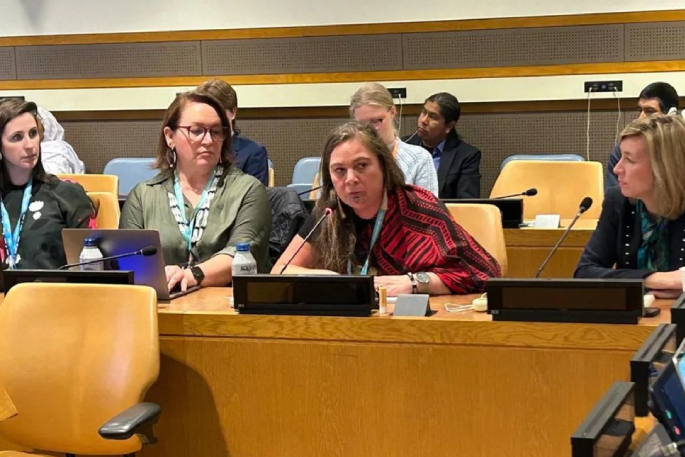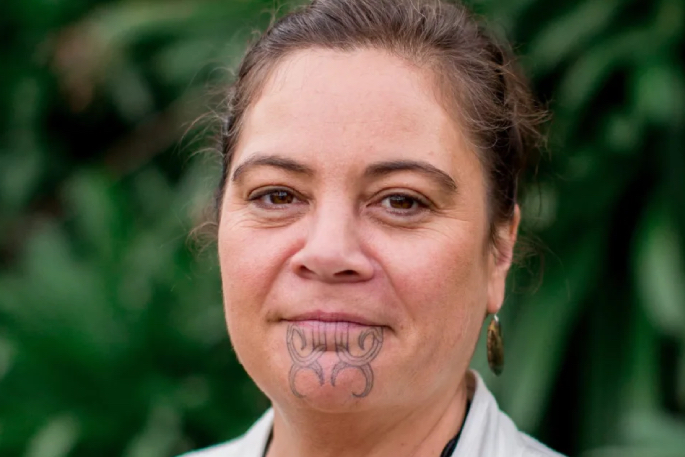Emma Rawson-Te Patu will be welcomed by the World Federation of Public Health Associations in Geneva, Switzerland, next week as its new president.
She will be the first New Zealander and first indigenous woman to head the organisation in its 57-year history.
"It is a privilege to take up this Public Health leadership role as a wahine Māori and an indigenous leader," Emma says.
"The United Nations and World Health Organisation have declared the importance of indigenous knowledge and traditions. Our federation is well positioned to show leadership globally by leaning into this responsibility."
Emma says the immediate priority for her two-year tenure was decolonising public health globally.
"Inequities for indigenous people are still as significant as they have ever been. Public health is about reducing inequities across the board.
"This is an opportunity for the global public health community to authentically understand how they can implement solutions to address Indigenous inequities that will also support the health and wellbeing of the total population."
Based at the University of Geneva, the WFPHA is made up of more than 100 national public health associations and represents five million academics, researchers, health promoters, doctors, epidemiologists, public health nurses and students.
Public Health leaders from across the globe will attend the inauguration including indigenous leaders and members of the organisation's Indigenous Working Group.
Dignitaries from New Zealand include whaea Martha Rodgers, past president of the Public Health Association of New Zealand and its first wahine Māori president.
Director-General of Health and chief executive of the New Zealand Ministry of Health Dr Diana Sarfati, and Deputy Director-General of the Public Health Agency Dr Andrew Old will also attend.
 Emma Rawson-Te Patu (centre) speaks at the United Nations permanent forum on Indigenous issues as president elect of the World Federation of Public Health Associations. Photo: Supplied / LDR.
Emma Rawson-Te Patu (centre) speaks at the United Nations permanent forum on Indigenous issues as president elect of the World Federation of Public Health Associations. Photo: Supplied / LDR.
Emma (Ngāti Ranginui, Ngāi Te Rangi, Raukawa, Ngāti Hauā) describes her appointment, following on from two years as vice president, as a "huge responsibility and a massive opportunity".
"I'm excited about the possibilities but at the same time I'm very aware of the responsibilities as an indigenous woman, and what this means not just for our people in Aotearoa but for indigenous peoples across the planet."
University of Otago epidemiologist Professor Michael Baker MNZM says Emma's appointment was "very good news" for public health in Aotearoa and globally.
"Emma brings huge mana and expertise that will enhance the work of the World Federation," Baker says.
"At the same time, Aotearoa will benefit from the global perspective that Emma will be able to apply through her continuing work here."
Next week's inauguration will take place during the WFPHA general assembly.
The inauguration will for the first time include indigenous processes and protocols, including an acknowledgement of the past president, a tikanga Māori process in te reo Māori to formally deliver Emma into the presidency, and haka and waiata.
Emma will then preside over the remainder of the general assembly.
Later in the week, the new president and the Indigenous Working Group will host an event focusing on Indigenous determinants of health and decolonising public health globally.
The workshop at the University of Geneva will include speakers from New Zealand, Australia and special guest Geoffrey Roth, expert member of the United Nations permanent forum on indigenous issues.
LDR is local body journalism co-funded by RNZ and NZ On Air.




0 comments
Leave a Comment
You must be logged in to make a comment.